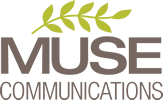What to Do if You Got a ‘Best Lawyers’ Notification
As I write this, we’re smack in the middle of what my colleagues and I call Lawyer Awards Season. Between April and November, there appears to be a new notification or embargo lift on a lawyer award every few weeks.
If you recently received a notification from one of the reputable “best lawyers” lists, you may be wondering how to get the most mileage out of the recognition. If you didn’t get one of those notifications, you might want to know how to improve your chances of making such a list.
We’ll cover both of those in this article.
Need help turning your legal marketing to-do list into reality? We can help with that! Just drop us a line. Muse Communications was named one of Texas’ best legal public relations firms by the readers of Texas Lawyer.
Is This Award Real?
Another question we often get is, “Is this award I just received legit?” There are two main ways to determine whether an award is on the up and up: First, have you heard of it? If you haven’t, it might not be legit. Second, is there a charge for the award? Many legit awards (e.g., Chambers, Best Lawyers in America, etc.) will sell badges and paid profiles, but you don’t have to purchase those to earn a spot on the list of honorees.
My favorite resource for determining whether an award is legit is this crowdsourced list published by FirmWise, a website design firm. It includes every law firm/lawyer ranking list I’ve heard of and many I haven’t, and ranks them from “reputable” to “pure spam.” Of course, we recommend you avoid the pure spam awards.
The Cons of Best Lawyer Lists
As someone working in legal marketing for more than 25 years, I have a love-hate relationship with these lists. Many lawyers feel the same way. Ask a lawyer/legal marketer why they hate these lists, and you might hear the following:
They seem like nothing more than popularity contests;
Clients don’t put any stock in them anyway; and
They’re just ways for the publications that put them out to make money selling ads, badges, and branded swag.
The Pros of Best Lawyer Lists
It’s nice to win popularity contests;
Some clients and prospective clients actually pay attention to these lists; and
If you’re going to spend money on marketing and advertising anyway, this is as good an option as any.
Regardless of what we think of them, “best lawyer” lists aren’t going anywhere. If anything, they’re multiplying.
Our best advice: If you care about making a “best” list, pick the one or two you care most about, educate yourself on the selection process and criteria, and begin putting yourself in the best position to make those lists.
Fortunately, the most important things to do to be selected are precisely what we recommend to any lawyer or law firm looking to grow their practice:
Step one: Be very good at what you do.
Step two: Make sure other people know you’re very good at what you do.
Of course, there are a million sub-steps, but that’s the essence of the entire concept.
By being very good at what you do and making sure other people know about it (via blogging, social media, email newsletters, personal networking, speaking, writing for business and legal publications, etc.), you’re more likely to be top-of-mind when “best lawyer” nominations go around.
One other tip: If you’re not already a household name in your local legal community, you probably should get comfortable with asking people to vote for you. Overt campaigning for “best” lists is frowned upon, but it’s certainly appropriate to reach out to a handful of people who know the quality of your work and ask if they would consider casting a vote for you.
A Note About Chambers and Benchmark
The steps outlined above don’t apply for awards such as Chambers, which publishes its annual lawyer and practice rankings, as well as its brand new Regional Spotlight list recognizing small and mid-sized firms, and Benchmark Litigation, which, as its name implies, recognizes litigators and litigation practices.
Those lists have very specific and comprehensive submission requirements, so if you are interested in those lists, you will want to follow their application processes. (That’s something we help with, by the way.)
Getting the Word Out If You Made a Best Lawyer List
Most “best lawyer” lists offer paid profiles in a printed publication, on their website, or both. Some lists (such as Super Lawyers, D Magazine, and Austin Monthly) offer a free electronic “badge” commemorating the recognition, but others (such as Best Lawyers and Best Law Firms) sell those badges. There are also advertising opportunities in printed publications.
If your budget allows and you believe your practice would benefit from one of those paid options, by all means purchase them. For some clients, in some practice areas, and for some lists, we recommend purchasing those. For others, it’s a pricey purchase with little ROI.
There are plenty of other low- and no-cost options to get the word out:
Issue a press release and/or blog post. The post should spell out the selection criteria and give a run-down of any other bona fides and awards you’ve received;
Promote the news on social media, especially LinkedIn;
Promote the news via email and/or your law firm’s email newsletter; and,
Run a digital ad on a legal publication’s website.
In your social media promotions, make sure to add an image. If you don’t have an in-house designer, check out Canva.com, where you can create FREE graphics. We are enormous fans of Canva, and we apologize in advance for all the time you will waste there now.
Of course, promoting good news and helping our clients let the world know how good they are at what they do are just some of the many ways we help law firms every day. So, if you need a hand, contact us at info@muselegalpr.com.
Amy Boardman Hunt is all about helping lawyers find their voice and showcase their expertise. When she’s not doing that, she’s trying to find great hiking spots in Dallas. If you know of any – or you need a legal marketing muse – drop her a line at amy.hunt@muselegalpr.com.


